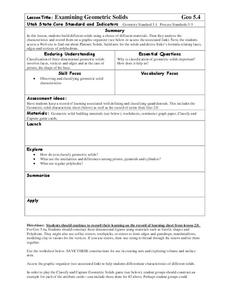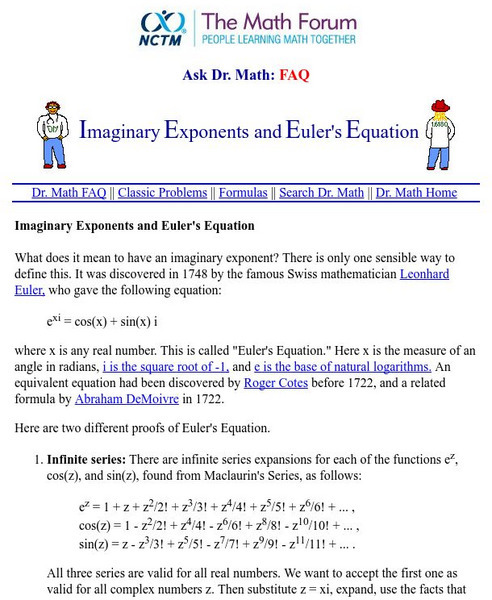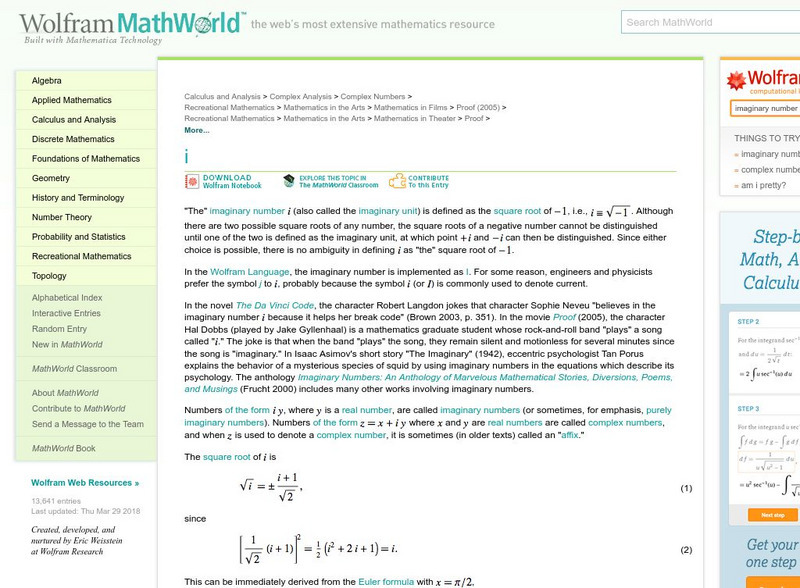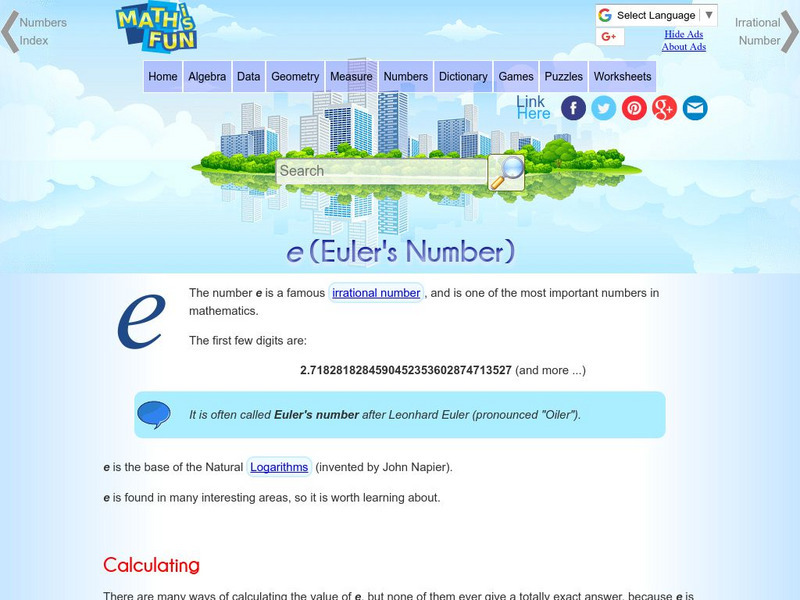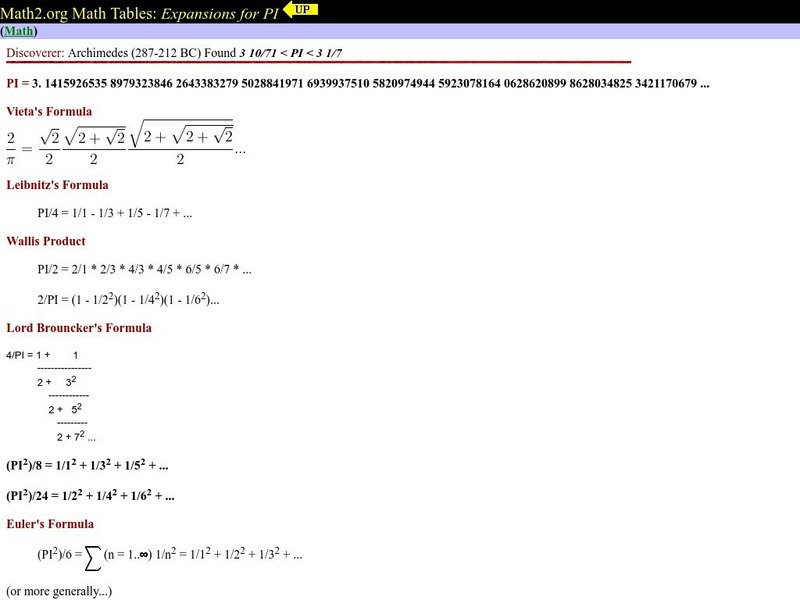Curated OER
Platonic Solids
Students identify different types of polygons. In this geometry instructional activity, students differentiate between convex and regular shapes. they identify the names of two and three-dimensional objects.
Curated OER
Geometry Journal: Classifying Solids
In this geometry worksheet, 10th graders respond to journal prompts related to prisms and classifying solid shapes. The two page worksheet contains nine questions. Answers are included.
Curated OER
Examining Geometric Solids
Students explore geometry by completing a math worksheet in class. In this shape identification lesson, students identify the characteristics associated with 15 solid geometric shapes. Students identify patterns between vertices, edges...
Mathigon
Mathigon: Graphs and Networks: Euler's Formula
This lesson focuses on Euler's Equation. Any (finite) graph can be constructed by starting with one vertex and adding more vertices one by one. We have shown that, whichever way we add new vertices, Euler's equation is valid. Therefore...
National Council of Teachers of Mathematics
The Math Forum: Ask Dr. Math: Derivation of De Moivre's Formula
A formula using Euler's formula to derive DeMoivre's theorem. Basic calculus skills of differentiating and integrating are required to understand this explanation.
National Council of Teachers of Mathematics
The Math Forum: Imaginary Exponents and Euler's Equation
"What does it mean to have an imaginary exponent?" This site has an exceptional answer and explains it in two different ways
Wolfram Research
Wolfram Math World: I
The imaginary number (also called the imaginary unit) is defined as the square root of negative one. This site explains the rational for the existence of the imaginary number "i" and gives formulas involving "i" including Euler's...
Wolfram Research
Wolfram Math World: Multiple Angle Formulas
A site from Mathworld on multiple angle formulas. This site shows how to express sin(nx)in terms of sin(x) and cos(x) using the binomial theorem and Euler's formula. If you are not yet familiar with these formulas, check out the links to...
CK-12 Foundation
Ck 12: Geometry: Polyhedra Study Guide
[Free Registration/Login may be required to access all resource tools.] This study guide reviews how to classify polyhedra, Euler's formula, and regular polyhedra.
Math Is Fun
Math Is Fun: E (Euler's Number)
Explains what Euler's Number is, its significance, and the formula used to calculate this irrational number. Gives memory tricks for remembering the value of e to 10 or 15 decimal places. Looks at some interesting properties of e and how...
Math Medics
S.o.s. Math: Bernoulli and Euler's Numbers
Definitions and formulas pertaining to Bernoulli and Euler numbers.
Wolfram Research
Wolfram Math World: Generalized Hyperbolic Functions
This site from MathWorld.com has information on the Hyperbolic functions. This site includes a definition which includes the derivative of such a function, the Euler formula for the function, its Laplace transform, and a list of the...
Math Medics
S.o.s. Math: Algebra
This lesson provides basic instruction on the major concepts in algebra. Content includes a focus on fractions, units of conversion, complex numbers, quadratic equations, factorization and roots of polynomials, solving equations, systems...
Math Is Fun
Math Is Fun: Platonic Solids: Why Five?
Use Euler's Formula and properties of known platonic solids' faces, edges, and vertices to determine why only five platonic solids exist.
Math2
Math2.org: Expansions for Pi
A listing of some of the more famous formulas developed and used throughout the centuries for defining pi are given and explained.
Mathigon
Mathigon: Geometry: Polygons and Polyhedra: Polyhedra
This lesson focuses on polyhedra; a polyhedron (the plural is polyhedra) is a 3-dimensional solid object that is made up of polygons. Euler's Polyhedron Formula: In every polyhedron, the number of faces (F) plus the number of vertices...
Other
Brown Math: Remembering Trig Identities
Faced with a large number of trigonometric identities, students tend to try to memorize them all. This site the emphasis is on understanding how the functions work and on memorizing only about a half dozen of them - all the others work...
Wolfram Research
Wolfram Math World: De Moivre's Identity
This MathWorld page states de Moivre's Identity.




